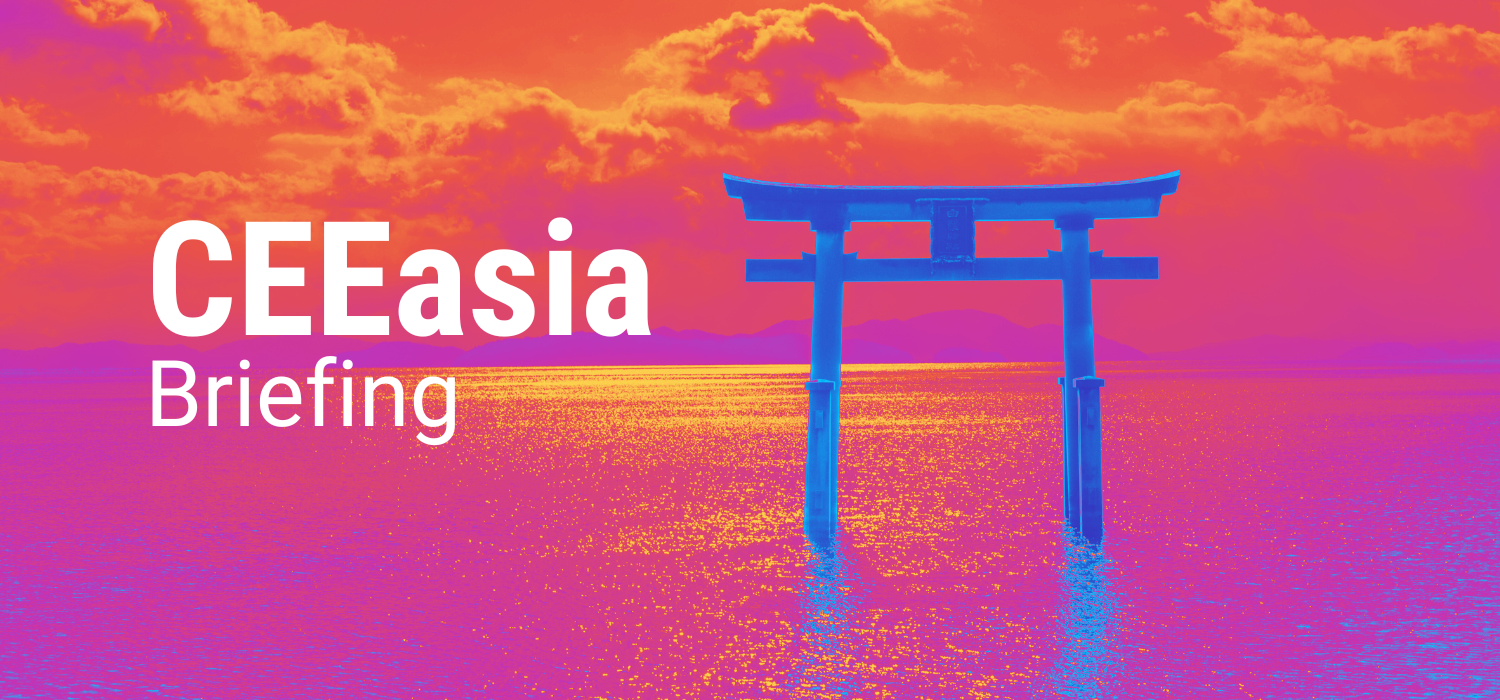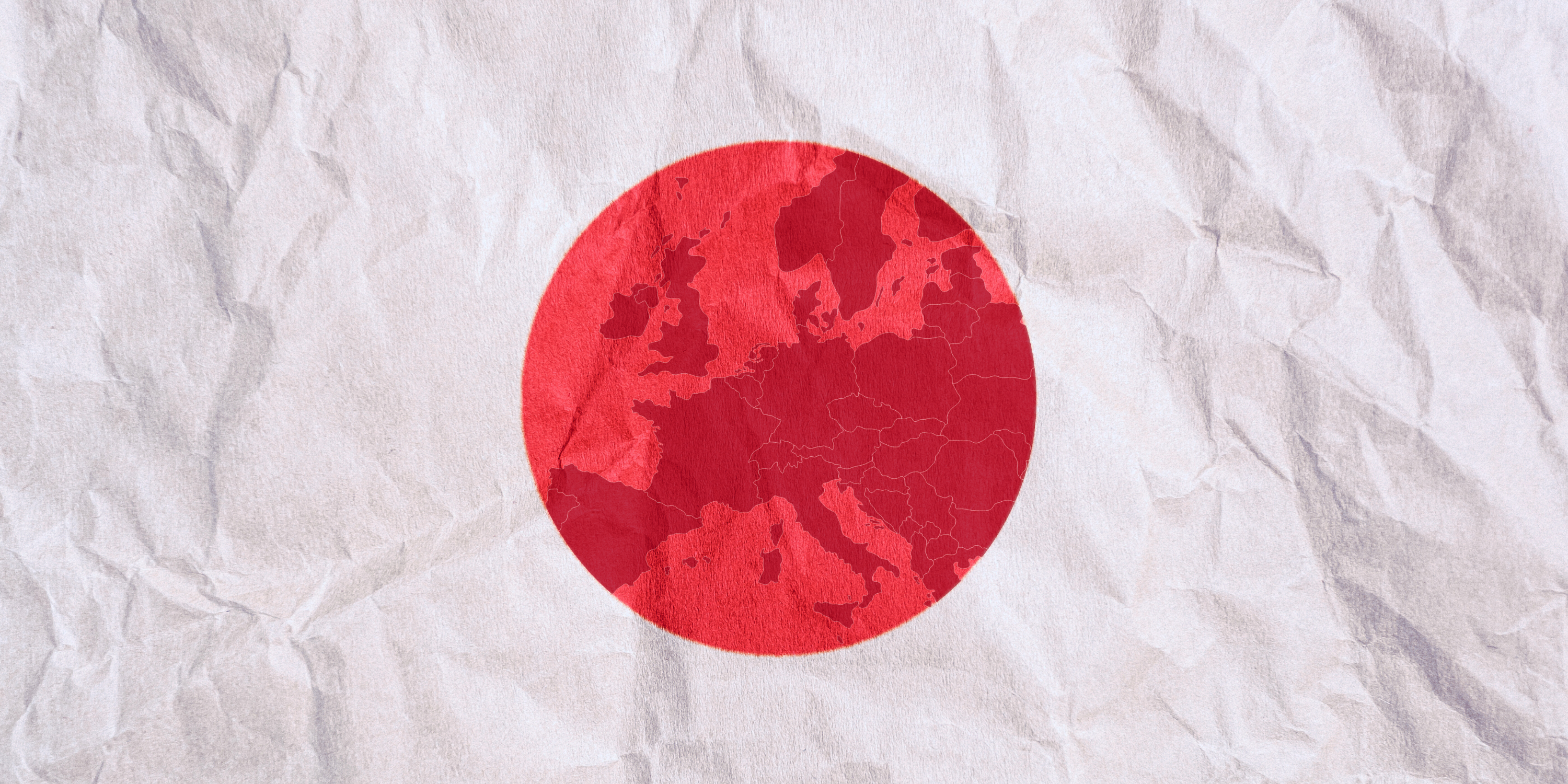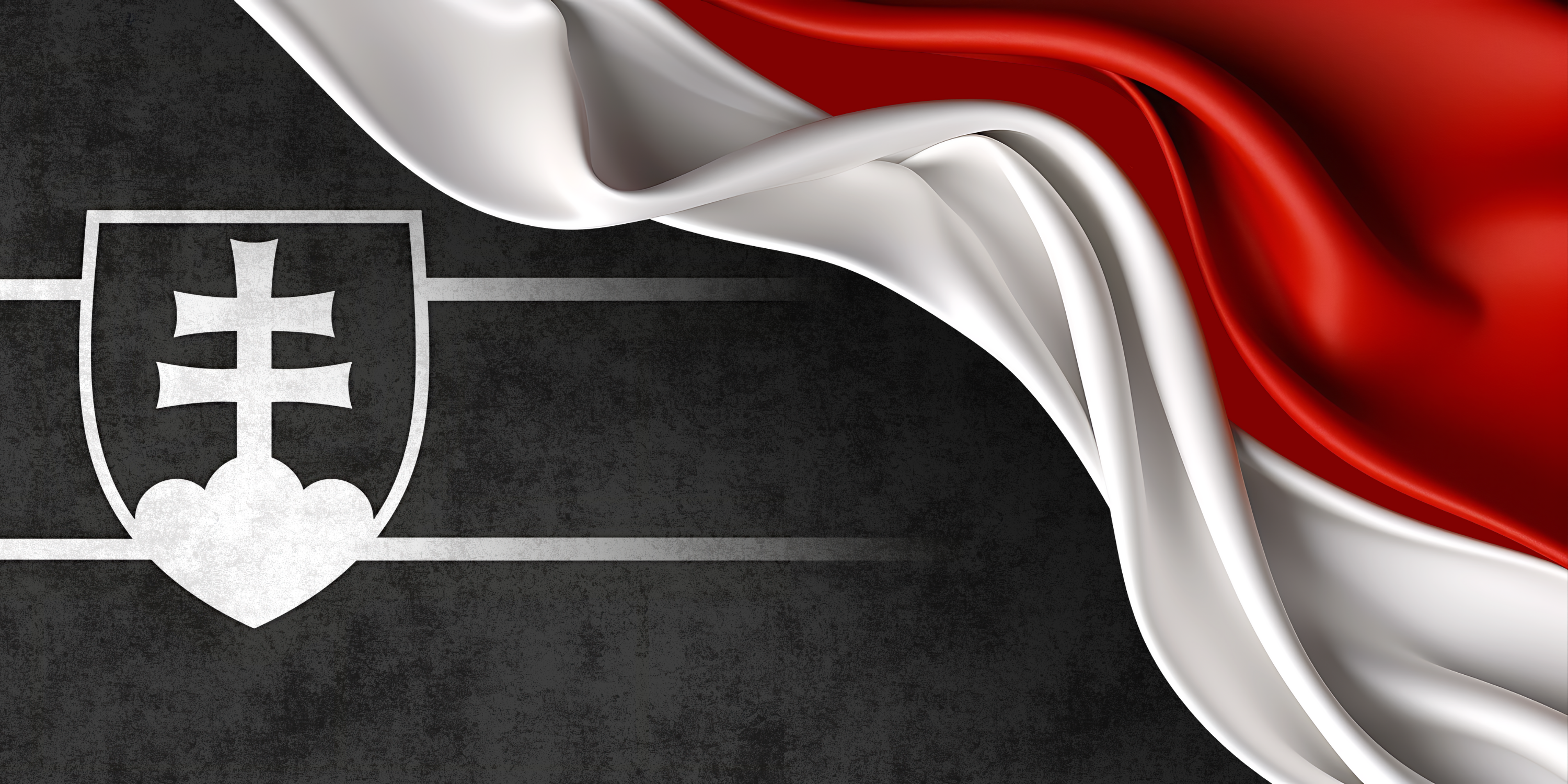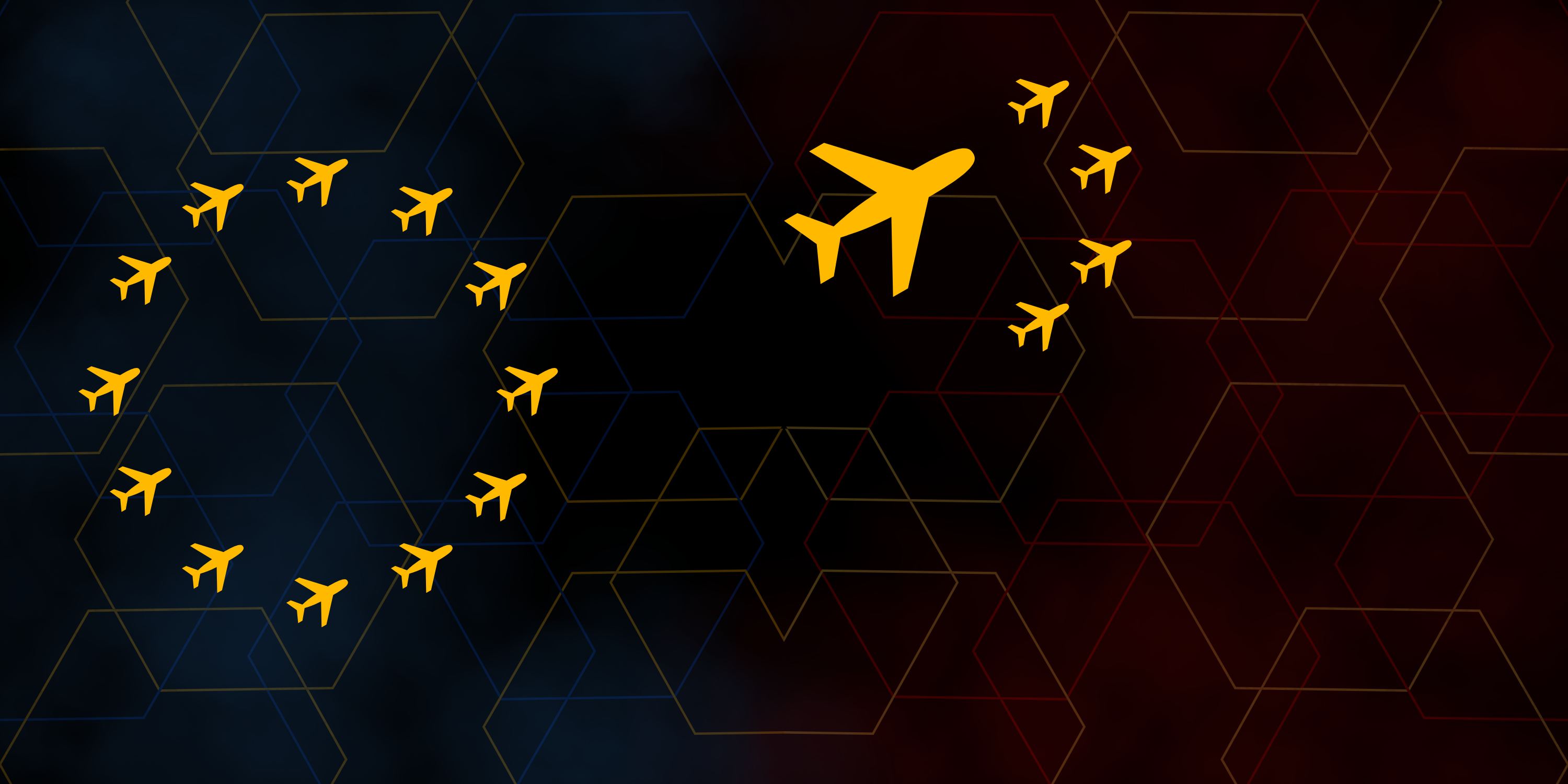Welcome to the 50th issue of the CEEasia Briefing.
In this issue, we dissect the following topics:
- EU’s probe into Chinese train maker
- China’s graphite exports to Hungary
- Vietnam-Germany relations
- EU sanctions against Indian company
If you like what you see, please forward this message to your friends and colleagues who can subscribe here.
Do you need to know more about East Asia? Don’t hesitate to shoot us a message about custom analysis tailored to your needs.
1. EU’s anti-subsidy probe into Chinese train maker
What’s going on? The European Union initiated an investigation into CRRC Qingdao Sifang Locomotive, a Chinese train manufacturer, following allegations of using subsidies to secure a contract in Bulgaria. This has raised concerns about potential distortions caused by foreign subsidies in the EU single market. The action represents the European Commission’s first case under the EU Foreign Subsidies Regulation, implemented in July 2023, which mandates companies to disclose any financial assistance from state entities when participating in procurement bids within the EU.
Going deeper…The bid for the contract of 20 electric trains, which included maintenance for a duration of 15 years along with staff training, was estimated at €610 million. Nonetheless, CRRC Qingdao Sifang Locomotive’s bid significantly undercuts both the estimated cost by Bulgarian railways (46.7% below) and the offer from Spain’s company Talgo. According to the European Commission, CRRC’s bid was made possible by €1.75 billion in subsidies from Beijing. The EU Commission must issue a decision by July 2, utilizing new regulations to scrutinize financial contributions granted by non-EU governments, potentially leading to the exclusion of companies benefiting from such subsidies.
This means… The EU’s investigation reflects growing concerns about unfair trade practices and the influence of foreign subsidies on the competitiveness of European firms. It also highlights the EU’s commitment to safeguarding its economic interests and preventing distortions in the procurement market — a key economic tool for the region, representing more than 14 percent of the GDP.
Moreover… In the coming months, the European Commission is expected to finalize an anti-subsidy inquiry into Chinese electric vehicle manufacturing, potentially resulting in increased tariffs on Chinese imports. Additionally, the EU is contemplating urgent measures to assist its solar panel manufacturing sector, which may involve initiating an anti-dumping investigation. These moves are part of a ‘de-risking’ policy, where the EU strategically reduces risk by diversifying suppliers for crucial products. Simultaneously, the EU is intensifying investment screening processes for Chinese companies, examining transactions to identify potential national security concerns.
2. China’s graphite exports to Hungary
What’s going on? China’s graphite exports to Hungary increased by 110% from 2022 to 2023. With graphite being a key material in battery anodes, this marks a further development in the increasing cooperation between the two countries in the production of EV batteries.
Going deeper… The cooperation between Hungary and China in EV battery supply chains has been on an upward trajectory since August 2022. Back then, Chinese battery manufacturer CATL announced that it will open its second European battery plant in the Hungarian city of Debrecen. Since then, a Chinese car manufacturer BYD also announced in December 2023 that it will build a new plant in Szeged, a Hungarian city which BYD chose over a city in Germany, citing lower labor and production costs.
At the same time… Chinese graphite exports to the rest of the EU have decreased over the same period, a development that is likely to be further exacerbated by Beijing’s imposition of export controls on graphite that came into effect last December.
This means… The increase in Chinese graphite exports to Hungary benefits Budapest’s goals of becoming the EU’s EV manufacturing hub, on one hand, and China’s gateway to Europe, on the other. However it also increases Hungary’s dependency on Chinese supply chains, which runs contrary to the EU’s de-risking and friend-shoring agendas.
3. Vietnam-Germany relations
What’s going on? During an official visit to Vietnam in January, German President Frank-Walter Steinmeier met with Vietnamese Prime Minister Phạm Minh Chính to discuss expansion of ties between the two countries. As Germany has been facing labor shortage and reforming its immigration and citizenship policy, Steinmeier called for young Vietnamese to come work in Germany.
Going deeper… Germany and Vietnam have been strategic partners since 2011. Germany is Vietnam’s biggest European trading partner and Vietnam is Germany’s primary trading partner among the ASEAN countries. The volume of their mutual trade was €18 billion in 2022 and total German investments in Vietnam amount to more than $2.8 billion.
This means… There are currently about 200,000 Vietnamese nationals or individuals of Vietnamese descent living and working in Germany, which makes them the 4th largest Asian community in the country.
However… Germany is currently short of reportedly more than 600,000 qualified workers, and estimations suggest that this number will rise to 7 million by 2035. As a result, the government has been trying to attract foreign workforce, especially in the health sector, engineering, and IT. In February, the German Parliament passed a law that will simplify the naturalization process or allow double citizenship. During President Steinmeier’s visit to Vietnam, labor ministers of the two countries also signed an agreement that will make access to the German labor market easier for Vietnamese people.
Meanwhile, Vietnam’s economy has been slowing down in growth. Exports, which form more than 90% of the country’s GDP, were down by 4.4% in 2023 compared to the previous year. By strengthening ties with Europe’s strongest economy, Hanoi hopes to attract more foreign investment mainly in the energy sector, transport, medical equipment, and infrastructure. Prime Minister Chính reportedly described Steinmeier’s visit “as a new driver of the Vietnam – Germany strategic partnership”.
4. EU sanctions against an Indian company
What’s going on? Marking two years since the start of the Russian war against Ukraine, the EU introduced the 13th package of sanctions against Russia. The package targets hundreds of individuals and entities, including an Indian tech company, among others from China, Kazakhstan, Thailand, and Sri Lanka.
Going deeper… The latest EU sanctions target electronic companies, particularly the ones engaged in drone production, which could have dual military and civilian use enhancing Russia’s military and defense capabilities, imposing export, travel and doing-of-business (in the EU) restrictions towards these subjects. It is also the first time that an Indian business, the Si2 Microsystems, will be subject to such sanctions. The Bangalore-based Si2 Microsystems produces “system-in-package” solutions, meaning combining multiple integrated circuits (chips or components) into a single unit, used by business, military, and space industry.
This means… Indian authorities avoid criticizing Russia over its war in Ukraine while stressing the need to end hostilities and turn to diplomatic resolution. Since the start of the war, India has also become one of the most prominent buyers of discounted Russian oil, increasing imports 57 fold. However, as oil demand remains firm also in Europe it seems rather unlikely that the sanctions would in the near future target oil refining and exports from India to the West, or energy sector in general. Moreover, India finds itself in a favorable position, maintaining long-term and strategic ties and mutual importance for both the West and Russia.
Quick takes on CEEasia developments
CHINA | The EU suspended World Trade Organization proceedings in the case against China. The case was initiated in 2022 following China’s imposition of a trade embargo on Lithuania in 2021, an action deemed by the EU as ‘discriminatory trade practices.’
CHINA | The European Commission is investigating TikTok under the Digital Services Act, focusing on protecting minors, transparent advertising, managing addictive design and screen time limits, as well as addressing harmful content. ByteDance, TikTok’s Chinese owner, could face fines up to 6% of its global turnover.
CHINA | During the meeting in Budapest, Viktor Orbán and Chinese Public Security Minister Wang Xiaoping expressed willingness to deepen security cooperation. Both countries subsequently signed an agreement aimed at bilateral law enforcement cooperation, including cooperation in counter-terrorism, combating transnational crime and drug trafficking.
JAPAN | Slovak’s Minister of Economy, Denisa Saková, signed a Memorandum of Understanding with Sekisui Chemical, a Japanese plastics manufacturer involved in the development of flexible photovoltaic panels. The MoU establishes the groundwork for close cooperation, particularly in identifying favorable conditions for Sekisui Chemical to enter the Slovak market.
JAPAN | Japan has declared its intention to contribute 96.7 million Euros to assist Ukraine’s war recovery at the Conference for Promotion of Economic Growth and Reconstruction held in Tokyo on February 19.
SOUTH KOREA | The Czech government plans to construct four nuclear power units instead of just one. South Korea’s KHNP and France’s EDF will be invited to submit revised bids for the construction tender by April 15. The US group Westinghouse did not meet the necessary requirements.
INDIA | India and France agreed on joint production of defense equipment for the Indian Armed Forces and India’s further export of military hardware abroad. The two sides will also set up maintenance and repair services for aviation – jet engines, and helicopters as well as surveillance missions in the southwest Indian Ocean.
INDIA | Slovak Foreign and European Minister Juraj Blanar and a mission of 22 Slovak businesses visited India to attend Raisina Dialogue 2024 and Confederation of Indian Industry’s Economic Forum. During his visit Blanar also met India’s External Affairs Minister Subrahmanyan Jaishankar and State Secretary of Defense Ministry Giridhar Araman to review the state of bilateral ties.







